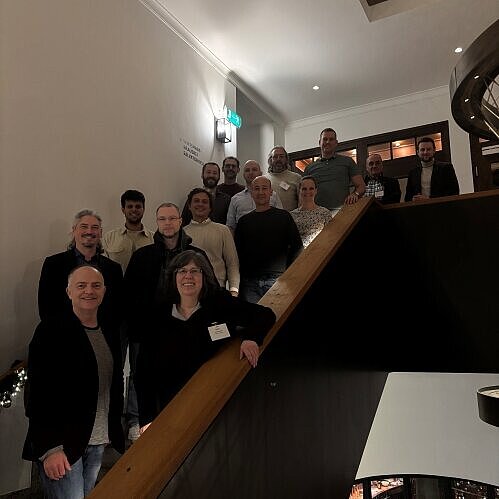BioPEtex project: Development of PE-based, spun-dyed, sustainable clothing made from bio-based raw materials
17.07.2025
The production of man-made fibers is growing continuously worldwide and is expected to exceed 100 million tons by 2030. Polyethylene terephthalate (PET) in particular dominates the market with a share of 80%. PET polyester is the most frequently used material in the clothing industry, with 30 to 60% of the PET produced worldwide being processed into clothing.
The textile industry faces significant environmental challenges, particularly due to the high proportion of non-bio-based and non-recyclable raw materials, which account for over 50% of the market and have a negative impact on the environment and resource consumption. There is currently limited progress in the production of 100% bio-based garments as these materials are expensive and not available in sufficient quantities. To date, there are only a few studies and lighthouse projects on completely bio-based textiles or clothing produced from them.
As part of an innovation space for bio-based textile research(Biotexfuture) funded by the Federal Ministry of Research, Technology and Space (BMFTR), numerous new, ongoing pioneering projects are being presented. Biotexfuture is led by adidas AG and RWTH Aachen University. These include projects on many aspects of the bioeconomy.
The ongoing bioPEtex project, funded by the BMFTR, aims to develop 100% bio-based polyethylene (BioPE) from bio-based raw materials and establish it on the clothing market. BioPE is an environmentally friendly plastic made from fermented starches or sugar and offers a sustainable alternative to PET. By using spun-dyed BioPE, energy and water consumption can be cut by 50% and CO2 emissions reduced by 60%.
The first results of the project show progress in the processing of BioPE in spun-dyed yarns suitable for textile applications. Process development with the dyed BioPE compounds is currently underway. The resulting partially oriented yarns (POY) have suitable properties for subsequent false wire texturing. Production speeds for melt spinning are currently in the industrial range (2,500 m/min). Tensile strengths of approx. 20 cN/tex have been achieved to date and the target values derived from PET-POY have therefore already been met. False wire texturing in the laboratory (ITA) and on a semi-industrial scale (BB Engineering GmbH, Remscheid) has also been successful. The mechanical yarn characteristics of the textured yarns (Draw-Textured Yarn, DTY) are thus improved and the yarn volume and heat retention capacity are increased.
Initial knitting tests with the laboratory DTY were successfully carried out at the industrial partner FALKE KGaA, Schmallenberg, and confirm a cooling feeling when touching the textile, due to the use of biofibers. Further yarns are being developed so that, as a next step, a T-shirt for sports applications can be produced from semi-industrial yarns and validated as a demonstrator. The bio-based elastic finish is also currently being developed.



